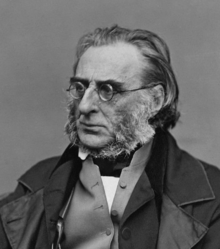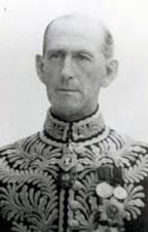
General Sir Charles James Napier, was an officer and veteran of the British Army's Peninsular and 1812 campaigns, and later a major general of the Bombay Army, during which period he led the British military conquest of Sindh, before serving as the governor of Sindh, and Commander-in-Chief in India.

Sir Henry Bartle Edward Frere, 1st Baronet, was a British colonial administrator. He had a successful career in India, rising to become Governor of Bombay (1862–1867). However, as High Commissioner for Southern Africa (1877–1880), he implemented a set of policies which attempted to impose a British confederation on the region and which led to the overthrow of the Cape Colony's first elected government in 1878 and to a string of regional wars, culminating in the invasion of Zululand (1879) and the First Boer War (1880–1881). The British Prime Minister, Gladstone, recalled Frere to London to face charges of misconduct; Whitehall officially censured Frere for acting recklessly.

The Bombay Presidency or Bombay Province, also called Bombay and Sind (1843–1936), was an administrative subdivision (province) of India, with its capital in the city that came up over the seven islands of Bombay. The first mainland territory was acquired in the Konkan region with the Treaty of Bassein. Poona was the summer capital.

Karachi Grammar School is an independent, English-medium school located in 3 different campuses across Karachi. The main and oldest campus is located in Saddar, Karachi, Sindh, Pakistan. It is a highly selective, coeducational day school serving approximately 2,400 students aged between three and nineteen years.
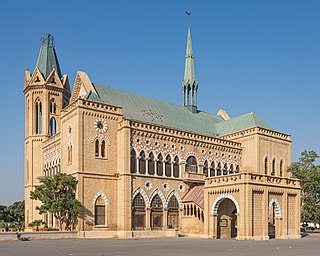
Frere Hall is a building in Karachi, Pakistan that dates from the early British colonial era in Sindh. Completed in 1865, Frere Hall was originally intended to serve as Karachi's town hall, and now serves as an exhibition space and library.
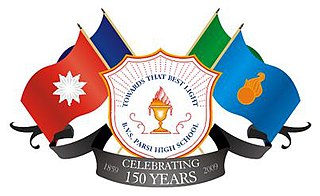
Bai Virbaijee Soparivala (BVS) Parsi High School is a private school in Karachi, Sindh, Pakistan. It opened in 1859 as Karachi Parsi Balak Shalla, by the Zoroastrian residents of Karachi.

Brigadier-General John Jacob was an officer of the British East India Company who served in colonial India for the major portion of his career. He is known for the cavalry regiment called 36th Jacob's Horse, and for founding the town of Jacobabad, in Sind province of British India, where he planned and supervised the transformation of thousands of acres of desert into arable land over the course of twenty years. The scale of progress and prosperity his works brought to the region can be appreciated by comparing those regions' relative prosperity compared to areas which were not under his administrative jurisdiction.

Merewether Clock Tower or Merewether Tower is a neo-Gothic clocktower built during the Victorian era in Karachi, Pakistan. The tower is a landmark in central Karachi, and is at the termini of two of the most important roads in central Karachi: Muhammad Ali Jinnah Road and I. I. Chundrigar Road. The tower used to mark the boundary of the city when arriving from the port at Kiamari, and marked the dividing line between Karachi's Old Town and its newer European quarters to the east. It currently is the westernmost point of the Serai Quarter.

The area of Karachi in Sindh, Pakistan has a natural harbor and has been used as fishing port by local fisherman belonging to Sindhi tribes since prehistory. Archaeological excavations have uncovered a period going back to Indus valley civilisation which shows the importance of the port since the Bronze Age. The port city of Banbhore was established before the Christian era which served as an important trade hub in the region, the port was recorded by various names by the Greeks such as Krokola, Morontobara port, and Barbarikon, a sea port of the Indo-Greek Bactrian kingdom and Ramya according to some Greek texts. The Arabs knew it as the port of Debal, from where Muhammad bin Qasim led his conquering force into Sindh in AD 712. Lahari Bandar or Lari Bandar succeeded Debal as a major port of the Indus; it was located close to Banbhore, in modern Karachi. The first modern port city near Manora Island was established during British colonial Raj in the late 19th century.
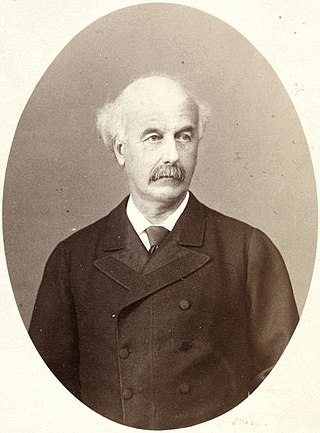
Lieutenant General Sir Lewis Pelly was a British East India Company officer, and then an imperial army and political officer. At the end of his life, he was a Conservative Member of Parliament for Hackney North, from 1885 to 1892.

Major-General Sir William Lockyer Merewether was a Bombay Army officer who served in a number of places including India and Abyssinia.
The governor of Sindh is the appointed head of the province of Sindh, Pakistan. The office of the governor as the head of the province is largely a ceremonial position; the executive powers lie with the chief minister and the chief secretary of Sindh.
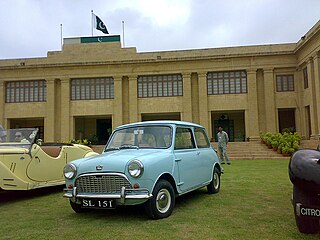
The Governor's House, officially known as Sindh Governor House, and also known by its former names including Government House, Governor-General's House and President's House, is a palace in Karachi, Sindh, Pakistan. It is the official residence of the governor of Sindh. The current governor of Sindh is Kamran Tessori. It is located along the Aiwan-e-Sadar Road of Karachi.

Bagh-e-Jinnah, Karachi is an urban park located between Abdullah Haroon Road and Fatima Jinnah Road in Karachi, Pakistan.

Claudius James Erskine, known as Claude Erskine ICS, was a British Indian civil servant, judge and vice-chancellor of the University of Calcutta.
